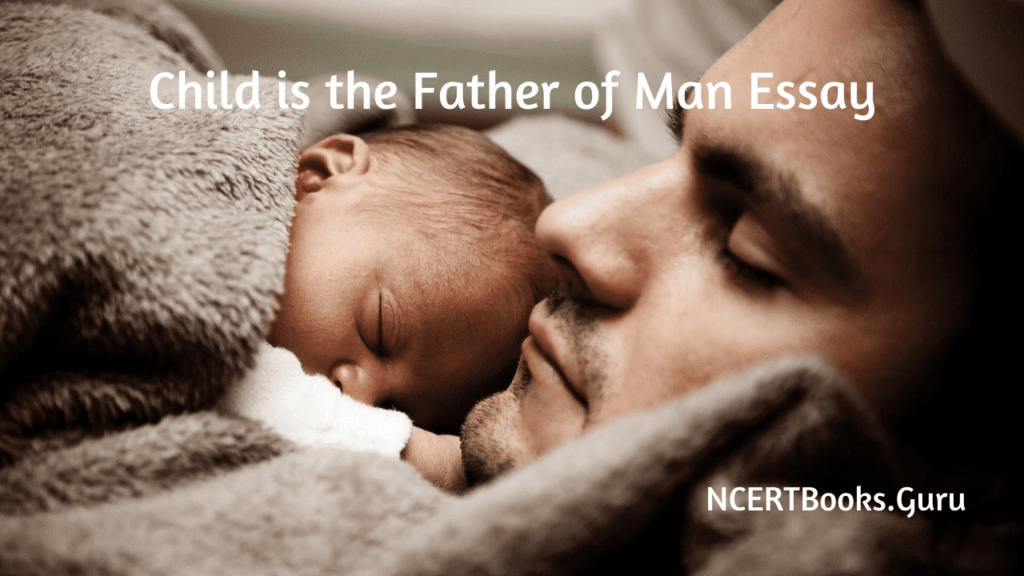Child is the Father of Man Essay: The qualities shown in childhood are often only indication of what the child is going to become in future. What the child is indicates what the man will be. The habits, traits, nature, qualities and special aptitudes are often only the developments of those factors, which were present in him or her when he or she was a child. By looking at a child and observing him minutely it can be predicted what kind of an adult, the child is going to become.
Childhood shows the man
As morning shows the day. -John Milton
Students can find more English Essay Writing Topics, Ideas, Easy Tips to Write Essay Writing and many more.
Short Essay on Child is the Father of Man 200 Words in English
Below we have given a short essay on Child is the Father of Man is for Classes 1, 2, 3, 4, 5 and 6. This short essay on the topic is suitable for students of class 6 and below.
The truth of the above fact can hardly be missed by anyone who has observed life carefully. ‘As the twig is bent, so the tree will grow’ is an old proverb. If a young plant is strong, and straight, the tree will also grow up to be the same. If a plant is feeble or the seed defective or rotten, the tree will be a poor specimen of vegetation.
To judge the truth of the above statement we can have a look at the lives of some men and women who have had their footprints on the sands of time. It is said of Michelangelo, the famous sculptor and painter that when he was a child, he used to amuse himself by making drawing on the paint pots easel, stool and other things which had been used by the old painter where Michelangelo used to go. This old painter used to say, “This boy will beat me one day” and the prediction proved to be true.
The childhoods of Mahatma Gandhi, Florence Nightingale, Subhash Chandra Bose, Sardar Bhagat Singh, Chandra Shekhar Azad, Sunita Williams, and Swami Vivekanand tell the same story. Who does not know the story of Mahatma Gandhi’s school, when the preacher of truth and non-violence did not lie and bore punishment? Bhagat Singh, Chandra Shekhar Azad, Newton, Subhash Chandra Bose and such others had one thing common in their childhood that all they were determined to make their country free and hated slavery.
There are exceptions also. Some children calm and quiet, disciplined and brilliant take the wrong turn somewhere in their lives and others who had destructive traits in their childhood or early youth become good people and some of them great men too. The life of Valmiki is the example. From a merciless robber, he became renowned by writing the immortal epic Ramayana and a learned Brahman king, Rawan became a tyrant. Still such examples are few and maxims or proverbs are created by majority of facts favouring the truth of a saying. We can repeat the words of Richter “The due of our destiny, wander where we will, lies at the foot of the cradle.”
